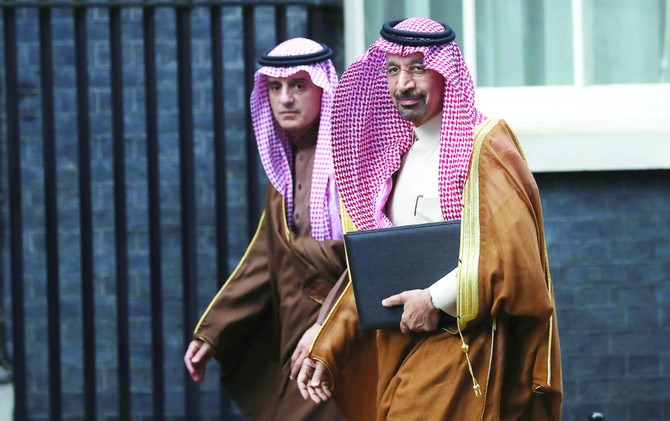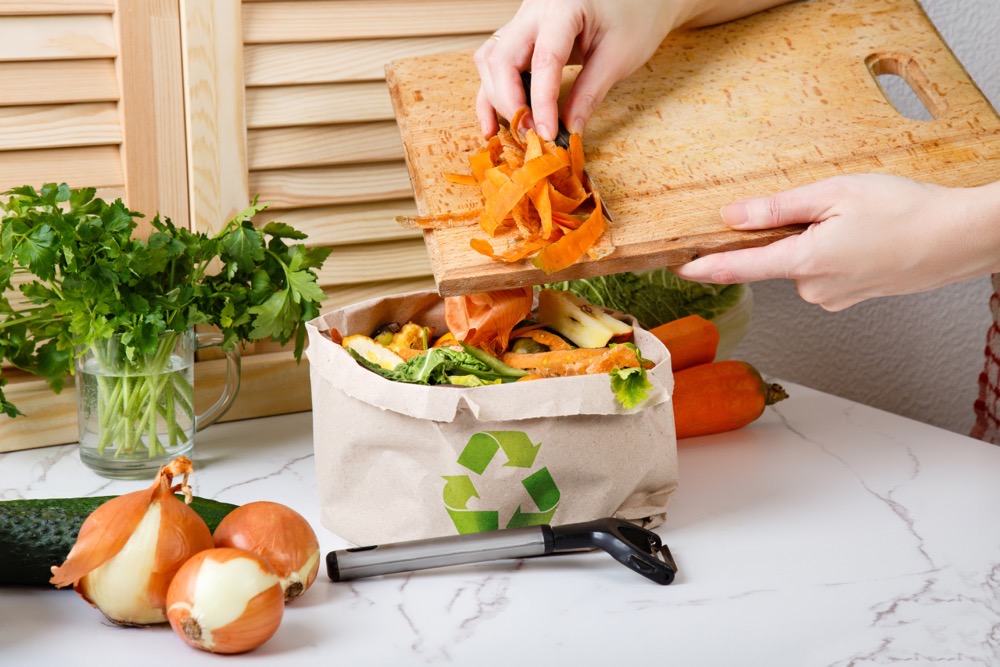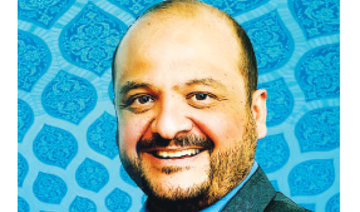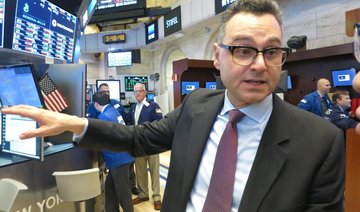DUBAI: When Khalid Al-Falih, Saudi Arabian oil minister and chairman of Saudi Aramco, told a TV interviewer of the “risk” and “concern” associated with New York financial markets, it was the first time a senior executive of the national oil company had spelled out, on the record, what others had been saying privately for some time: An American listing might not be best for Aramco.
The New York Stock Exchange had long been regarded as the front runner in the race to stage the biggest initial public offering in history. Ever since the IPO was first announced in late 2016, Wall Street’s Big Board was seen as the inevitable venue for the listing, not least because that was what the shareholder — the government of Saudi Arabia — wanted.
There were other very persuasive reasons to choose NYSE, or even its equally powerful city rival Nasdaq, over other contenders such as London or Hong Kong, for the international element of the IPO in addition to Riyadh’s Tadawul.
The New York exchanges are the two biggest stock markets in the world, by some way. On either, Aramco would be able to rate itself alongside the biggest companies in the energy and high-technology sectors. Each would have the liquidity and investor power to help Aramco to the ambitious $2 trillion valuation officials placed on it.
And, finally, President Trump — regarded as a friend of Saudi Arabia — made it obvious in a series of tweets that he wanted Aramco in New York, and would “appreciate” it if the Saudi company would list there.
Such big-name backing, for a while, made New York seem a shoo-in for the IPO, despite some qualms among Saudi officials and advisers about the threat from anti-terror financing laws and rigorous regulation and disclosure requirements, especially for oil companies and especially relating to reserve disclosures.
But Al-Falih spelt out a more serious worry for Aramco. It was not laws that concerned him, he said, in a reference to the Justice Against State Terrorism Act and Sarbanes Oxley laws, but “litigation and liabilities.”
He explained specifically that on his mind were the big lawsuits brought against five oil companies in New York City by the mayor Bill de Blasio on charges that they had misled the whole world on the effects of climate change over many years.
The charges were “frivolous,” he said, adding: “Quite frankly, Saudi Aramco is too big and too important for the Kingdom to be subjected to that kind of risk.”
Whatever Al-Falih thinks of the climate change actions, they are not seen as “frivolous” in the US. When the charges were leveled against BP, Chevron, ConocoPhilips, Exxon Mobil and Royal Dutch Shell earlier this year, they were just the latest in a barrage of legal actions in California, Texas, and New York State.
At the CERAWeek energy conference in Houston, Texas, last week, the climate change actions were spoken of as a serious threat to the oil companies and their basic product. They compared them to the onslaught against “Big Tobacco” in the 1990s that wiped billions of dollars off their valuations and threatened their very existence.
One oil expert, who did not wish to be named, said: “This legal campaign against the oil companies has all the signs of being carefully coordinated across the country, and is highly organized from state to state. It is a political campaign, masking as an environmental action.”
Some of the oil companies under investigation have had to go back decades in their records in an attempt to prove that they did not knowingly mislead shareholders, customers, and investors about climate change risks. The legal costs of defending the actions will be enormous and will last for years.
Aramco executives are said to regard being caught up in a US campaign against Big Oil with horror. “They could have lived with the Jasta laws — as Saudi business already does in the US — but this was the final straw,” said an oil industry analyst who did not want to be named.
The climate change threat does not necessarily amount to a deal-breaker for Aramco in New York. One expert on Saudi oil, Ellen Wald, author of the forthcoming book “Saudi Inc”, tweeted about Al-Falih’s comments: “He is posturing here — he’s preparing negotiations before (Crown Prince Mohamed bin Salman) visits New York. More than any exemptions from London Stock Exchange, NYSE or Securities and Exchange Commission, they (Aramco) want de Blasio and state attorney generals to quit with ‘frivolous’ climate lawsuits.”
Whether posturing or serious concerns, the climate change lawsuits look certain to be on the agenda of the official party accompanying the royal visit in talks with US politicians, Trump included.
It is difficult to see, however, what even the president can do to stop legal actions brought by city mayors or state legal officers, no matter how much he wants to get Aramco to list in his hometown.
New York allure fades for Saudi Aramco as ‘frivolous’ climate change actions loom
New York allure fades for Saudi Aramco as ‘frivolous’ climate change actions loom

- Threat of climate change lawsuits makes US listing for Aramco less attractive
- Aramco too big and too important for KSA to be subjected to that kind of risk — oil minister
How sustainable food producers are shaping the future of agriculture in Saudi Arabia

- Topian, a NEOM subsidiary, plans to transform food production and consumption with sustainable and innovative solutions
- KAUST’s Center of Excellence for Sustainable Food Security aims to address challenges in resource efficiency, crop improvement, and biosystems
RIYADH: Achieving food security and sustainability is a top priority for Saudi Arabia as it works toward building a more inclusive economy. The Kingdom aims to accomplish this by boosting domestic production and investing in international supply chains to secure key commodities that are unavailable locally.
Strategic transformations as well as enhanced international cooperation are both essential in efforts to address global food insecurity, Abdulrahman Al-Fadley, Saudi Arabia’s minister of environment, water and agriculture, said at the recent meeting of G20 agriculture ministers in Brazil.
“There is a pressing need to adopt a long-term transformation for food security and nutrition,” he told decision-makers on the second day of the conference.
“This underscores the need to intensify our efforts and strengthen collaboration to develop pragmatic solutions for building sustainable, healthy and inclusive food systems.”
The G20 agriculture, fisheries and aquaculture ministers met on Sept. 12-13 in Chapada dos Guimaraes, Brazil, to discuss strengthening the resilience and sustainability of food systems across economic, social and environmental dimensions. These sectors are key to achieving the 2030 Agenda for Sustainable Development.
Increased efforts to boost Saudi Arabia’s food production resulted in the country announcing in September 2023 that it had achieved self-sufficiency in fresh dairy products and eggs, with surpluses available for export.
In addition, the Kingdom has significantly increased domestic production of various crops, including potatoes, tomatoes, carrots and onions, as well as red meat.

This progress comes from increased efforts to boost domestic food production by involving all stakeholders, including the private sector and civil society. One notable company is Topian, which was launched by NEOM in 2023.
Topian aims to redefine food production, distribution, and consumption by creating sustainable, innovative solutions in five key areas: climate-proof agriculture, regenerative aquaculture, novel foods, personalized nutrition, and sustainable food supply and environmental, social and governance.
Founded with the support of the Saudi Ministry of Environment, Water and Agriculture, Topian aligns with the goals of the Kingdom’s Vision 2030 plan for national development and diversification. The company is leading efforts to ensure food security, combat climate change, and achieve net-zero emissions by 2060.
“As a wholly owned subsidiary of NEOM, Topian is fully aligned with NEOM’s commitment to providing high-quality food products to the market, and promoting food security and sustainability, while contributing to the Kingdom’s self-sufficiency objectives and long-term economic goals,” said Juan Carlos Motamayor, the company’s CEO.
Opinion
This section contains relevant reference points, placed in (Opinion field)
“Topian is leading the food-security conversation to create a resilient food supply in line with the Saudi Green Initiative and the UN’s Sustainable Development Goals.
“We are not only committing to shaping a transformative global food system, but also to setting a global benchmark by pioneering new technologies and innovative solutions to overcome food-related challenges and create a more secure, sustainable and prosperous future for all.”
Topian has formed several local and international strategic partnerships with organizations committed to reshaping the future of food.
These agreements include collaborations with King Abdullah University of Science and Technology, Tabuk University, Tabuk Fish Company, BlueNalu, Van der Hoeven Horticultural Projects, and Cargill.

Through these partnerships, it aims to drive research and development, leveraging expertise to create innovative and sustainable food-production methods.
The company is also committed to the NEOM CARE partnership, which focuses on educational initiatives to promote local sustainable gastronomy and develop Saudi talent through training opportunities and chef camps.
Another key Saudi initiative aimed at achieving food security is the Center of Excellence for Sustainable Food Security.
Founded by KAUST in 2024, the center focuses on the advancement of technology-driven solutions to help enhance sustainable food production, particularly in arid environments. Its primary goal is to translate research into practical applications that minimize the environmental impact of food systems.
The center is led by Mark Tester, an expert in plant science and agriculture in arid environments, and co-chaired by Brande Wulff, a leader in crop genetics, and Peiying Hong, an expert in environmental microbiology and wastewater treatment.
DID YOU KNOW?
• Food systems are responsible for at least 21 percent of total greenhouse gas emissions, 80 percent of deforestation, and 45 percent of groundwater use, making them the top cause of land biodiversity loss.
• Saudi Arabia is targeting a 75 percent reduction in food waste by 2050, encouraging plant-based diets and sustainably-sourced seafood.
• The Kingdom aims to reduce degraded land by 50 percent by 2050 and achieve land degradation neutrality by 2030.
It aims to address key challenges in resource efficiency, crop improvement, and sustainable biosystems, with the goal of enhancing food security in Saudi Arabia and beyond while minimizing environmental impacts.
“To deliver food to our plates, we need to prepare the land, improve our crops, harvest, process and distribute,” Tester told Arab News.
“Together, these activities are arguably the most environmentally impactful of all human activities, using half of all the land and three-quarters of all the water we use, and the food sector is probably the second-biggest emitter of greenhouse gases.

“All steps in the process need to be improved to increase sustainability, from fertilizer production and the deployment of technologies to increasing our ability to grow fresh fruits and vegetables locally, through to education to improve nutrition and reduce waste.”
The center uses advanced technologies to boost sustainability in the food sector, including artificial intelligence-machine learning, Internet of Things sensors, and computer vision and robotics, all key components of the Fourth Industrial Revolution.
It also employs nanotechnology, such as heat-absorbing nanoparticles that reduce heat load in greenhouses, and biotechnologies such as genomics, gene editing and modifications to enhance crops in ways previously not possible.
Tester said the center has also introduced the Sustainable Food Security Edible Education Program, which is designed to “help reconnect young people with the sources of their food — ultimately plants — and to do this in a way that is fun and engaging, and in a way that kids can immediately relate to; i.e., through food.”
He added: “We all get hungry, several times a day, and if we are growing at least some of our food that we then eat, it reminds us of how our meals end up on our plates. In the Edible Education Program, we help children and their teachers grow plants in the schoolyard and use these for some of their school lunches. It is immediate, direct and fun.”
Saudi Arabia has actively promoted domestic and foreign investments in agriculture, Al-Fadley, the environment, water and agriculture minister, said during the G20 meeting in Brazil. Over the past four years, agricultural loans have surged, contributing to growth of 35 percent in the Kingdom’s agricultural gross domestic product.

Alkhobar offers a visual feast with 56 works exploring new realities

- Artists from Saudi Arabia and the world are screening creations
- Kingdom’s Lina Saeed Qattan showing ‘Lena and the Magic Carpet’
ALKHOBAR: The sixth International Video Art Forum launched this week at the Cinema Society headquarters in Alkhobar, offering a visual feast for afficionados.
Organized by the Saudi Society for Culture and Arts, in collaboration with the Cinema Society, the event runs for 10 days and will feature groundbreaking video art from around the globe.
A jury of experts selected 56 artworks, narrowed down from 127. And the space showcases work from 29 countries, narrowed down from 41.

“There is no particular theme this year — aside from it being within the realm of ‘imagination embodied, reality transformed,’” Yousif Al-Harbi, director of SASCA’s Dammam branch and general supervisor of the forum, told Arab News.
“This year’s works continue to express the transformation of imaginative ideas and perceptions into tangible works of art that can have an impact on the reality that we live in.”
The videos can be watched in the upstairs space, which is covered with a black cloth door. Only three people can watch the short films as they play on a loop.
This year’s works continue to express the transformation of imaginative ideas and perceptions into tangible works of art that can have an impact on the reality that we live in.
Yousif Al-Harbi, Saudi Society for Culture and Arts director
The longest video is 7 minutes and the shortest under a minute.
A notable video is the 3-minute “Choreography of Space and Time” by German-based Egyptian artist Ehab Aziz that blends abstract imagery and dynamic movement.
In addition, Saudi Arabia’s Lina Saeed Qattan’s minute-long “Lena and the Magic Carpet,” uses artificial intelligence to showcase vibrant colors as Lena travels through the desert.

Arab News spoke with the 21-year-old Yemeni director, Yousef Ahmed, who has lived his entire life in the Eastern Province, about his short film, “Dose.”
“The film is about a depressed person who replaces his medication with sweets after reading a newspaper article,” he explained.
“It explores his journey of shifting perspectives — rising out of his sadness, only to sometimes fall back into it. We’ve all had days like this, and that’s completely normal.”
The film, under a minute long, was shot and edited entirely on a mobile phone over a month, specifically for the forum. “The phone is always available and accessible,” he said.
He added that finding the right music and fitting it into a larger format such as a TV screen was a challenge.
Workshops dedicated to AI and painting with light, were also part of the programming, as well as panel discussions with filmmakers and artists.
The forum has become one of the region’s top international platforms for video art, having featured more than 823 artworks from over 70 countries.
It has also hosted 31 lectures and workshops, offering artists a unique opportunity to connect and share their work with a global audience.
The winners will be announced at the conclusion of the event.
1,500 influencers participate in Riyadh’s ImpaQ event

- The signing ceremony was attended by Saudi Arabia’s Media Minister Salman bin Youssef Al-Dossary, who emphasized the significance of such initiatives in supporting the media and digital sectors
RIYADH: The Impact Makers Forum, organized by Saudi Arabia’s Ministry of Media, drew over 1,500 influencers and specialists from around the world, including more than 30,000 visitors.
ImpaQ, the first and largest event of its kind in the Kingdom, was hosted at the Mayadeen Hall in Diriyah, Riyadh, under the slogan “Inspiration Beyond Numbers.”
The two-day event, which ended on Thursday, provided a new platform for influencers to focus on creativity and innovation.
During the forum, a series of strategic agreements and partnerships were signed to promote and enhance creativity and innovation in the Kingdom’s media and marketing sectors.
The signing ceremony was attended by Saudi Arabia’s Media Minister Salman bin Youssef Al-Dossary, who emphasized the significance of such initiatives in supporting the media and digital sectors.
Plaudits for Hail Region Development Authority

- Omar Abduljabbar highlighted the authority’s concentration on human capital and its consistent attempts to empower and support national talent to drive its mission forward
HAIL: Great Place To Work, the global workplace culture organization, has ranked Hail Region Development Authority as fourth among the best public sector workplaces in the Kingdom.
The recognition underscores the authority’s commitment to cultivating a positive workplace culture, enhancing employee experiences, and strengthening the body’s reputation.
Omar Abduljabbar, the CEO of Hail Region Development Authority, said that the ranking reflected the authority’s commitment to fostering a positive and empowering work culture.
He highlighted the authority’s concentration on human capital and its consistent attempts to empower and support national talent to drive its mission forward.
Abduljabbar stressed the authority’s dedication to regularly assessing employee satisfaction, and attributed its achievement to its unwavering focus on creating a supportive, innovation-driven atmosphere that enhanced productivity and aligned with strategic objectives.
Pakistan president receives Saudi Shoura Council speaker in Islamabad

- Sheikh Abdullah conveyed the greetings of King Salman and Crown Prince Mohammed bin Salman to the Pakistani president
ISLAMABAD: Saudi Shoura Council Speaker Abdullah bin Mohammed Al-Sheikh was received by Pakistan’s President Asif Ali Zardari in Islamabad as part of his official visit, reported Saudi Press Agency.
Sheikh Abdullah conveyed the greetings of King Salman and Crown Prince Mohammed bin Salman to the Pakistani president, as well as their well wishes for the government and the continued progress and prosperity of the country’s people.
During the meeting, the two men reviewed bilateral relations between the two nations and ways in which they could be enhanced. Other topics of common interest were also discussed.






















